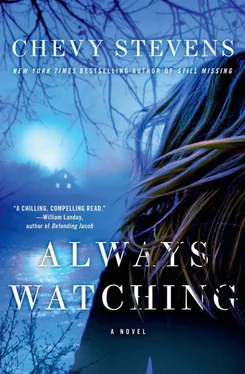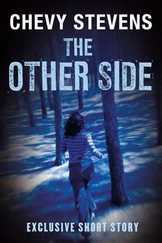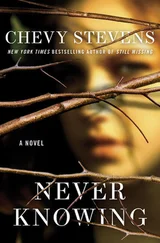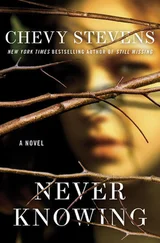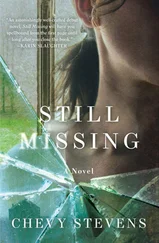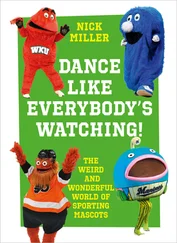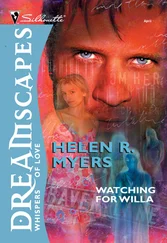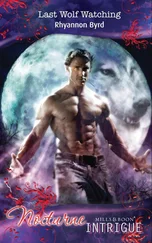“I heard a little boy also died out there….”
His eyes widened, but then closed back down. He nodded. “That was a bad bit of business. Parents smoking too much wacky tobacky, and the kid dies in a puddle.”
“That’s so sad. Do you know if anyone was ever charged?”
“The cop who worked the case, Steve Phillips, he’s retired now, but he’s still in Shawnigan. You’d have to ask him about that.”
I nodded. “Thanks for the information. It was interesting.”
He just grunted.
At the bottom of the stairs, I turned around. “I’d love to talk to that officer. Do you know where he lives?”
We held gazes again, his revealing nothing, then he said, “He lives by the provincial park. Big white house at the end of Minnow Lane—he’s got a camper in the front.”
I knew the area well. In the summer evenings, after we’d been hauling hay all day, our dad would stop at the park and we’d race through the dark trails in the forest, over the open field into the water, washing away the hay and sweat.
“Thanks, that’s very helpful.” The words were barely out before he’d shut the door. But a corner of his blind lifted up as I backed down the driveway.
I felt him watching me until I’d turned around and driven off.
It didn’t take me long to find the white house, but when I knocked on the door I was greeted by silence. As I walked back to my car a man, trimming branches off a tree in the next yard, shouted, “Can I help you?”
“I was hoping to speak with Mr. Phillips. Do you know when he’ll be home?”
“He’s off fishing. Won’t be back until next Friday.”
Thank God for small towns, where most people still trusted a friendly face.
“Thanks, appreciate that.”
* * *
I had planned on heading straight back to Victoria, but instead I sat for a minute at the end of the driveway, the car idling. Maybe I should go out to the commune site and see if any memories pop up. My heart rate accelerated immediately at the idea. Then, angry at my fear, I turned my car in the direction of the commune. When I passed my brother’s driveway and made a left at the north end of the lake onto Renfrew Road, I wondered if he ever went out there. When we were in our teens, he used to go four-wheeling up in the mountains for hours at a time, but I had no idea if he ever visited the site or even thought about it.
Five minutes later, I hit the junction at the end of Renfrew Road, where it turned to gravel, and stayed right—the other side is mostly used by logging trucks. It was also where my mother had her accident. A light mist blanketed the forest, making the houses and ranches look spooky, the chill March air causing me to turn my heat up. I drove slowly, so I didn’t bottom my car out on the rough road, but I was also dreading the emotions and memories I might find ahead. Finally, I passed the old gravel pit and came to another junction in the road at Burnt Bridge—so named for the forest fire that destroyed the first one. I made a left, and a few more miles down the road, there it was.
I wasn’t sure how overgrown the forest might be since I’d been there with my ex-boyfriend, or if I’d even recognize the entrance, but the wooden sign with hands reaching toward a light, River of Life written in blackened letters across the bottom, was still hammered into one of the big Douglas firs at the top of the driveway. Though the carving was now aged and weather-beaten, it sent a tingle of anxiety down my back. I was surprised that no one had taken it down, wondered if it was respect or fear that made them leave it alone. Three big boulders had been placed at the entrance, blocking any vehicles. I wondered if it was still Crown land—the commune members had been squatters.
I pulled over on the side of the road. Even with my windows closed, the river was loud, full from winter runoff. I took a deep breath and climbed out of my car, glad I’d decided to wear flat shoes and jeans. It had been sunny all week, but it was still cold, and even more so at the side of the woods, where the dampness crept into my bones. I wrapped my scarf around my neck and grabbed my gloves out of the car before making my way along the smaller dirt road, which went down a hill, then toward the river and the commune.
Other than some motorbike tracks, it was clear the road hadn’t been used in years, grass and saplings growing down the middle. The old-growth forest had an eerie feeling; a standing snag leaned sideways like a great fallen beast, draped in moss, everything dark and shadowed and silent, which was intensified by the realization that I was alone out there. That thought was interrupted by a vehicle roaring by on the road above. I turned, listened for it to stop, but it kept going. I continued deeper into the forest.
The trees—Douglas firs, hemlock, red cedar—were dense and thick, the woods still. I made myself take some deep breaths as I felt my throat close up, concentrating on the beauty not the fear: the moss-covered trees, the ground blanketed with ferns and deep thickets of salal. The shrub, with its thick, shiny green leaves, was common in the Pacific Northwest, but we’d used the dark blue berries as a sweetener. Fiddlehead ferns would be popping up soon, which we used to fry with butter, along with wild mushrooms. We’d also cook stinging nettles like spinach, and pick sweet, tangy huckleberries for pies and jams.
When I entered the main clearing, I was surprised to see that a lot of the old buildings were still there. There were signs of campfires, blackened logs, the odd beer can and cigarette butt, like someone had been having parties. The cabins were falling down, with their roofs sagging, windows smashed, and some were completely collapsed. The old bus was gone. One rusted rim, though, stood against the side of a tree, riddled with bullet holes.
The fences had also come down, and the pens were overgrown with weeds and brush. I followed the path through the center of the commune, remembering how it all used to look, thinking that this was my history, good or bad. This place made me who I am today: I rarely eat meat, prefer organic food, soaps, and sundries from the health-food store, and I love jewelry and art inspired by nature. If Aaron and Joseph hadn’t been here, it would have been a heavenly place to grow up.
I stopped in the center of the commune, where we’d eaten all of our meals at a long table. The cabins were built in a circle, radiating out like a fan from the fire pit, and the old sweat lodge, now gone. I slowly spun around, taking it all in. Then I closed my eyes, awakening my senses. I caught the scent of charcoal from old campfires and skunk cabbage on the breeze, remembered sitting around the fire with Robbie and the others, listening to Aaron sing and play the guitar.
I thought of Willow, how great she was at encouraging everyone to join in, even Robbie, who hated to sing but had a strong, deep voice. He’d laugh and refuse, but he’d always give in eventually. Now that I thought about it, he spent a lot of time with Willow. He’d been friends with a few girls in the commune, and more than friends with a lot of them. But something about their relationship felt different. Robbie had been casual when I asked about her, like she was just one of the members, but now I wondered if they might’ve been closer than I realized. I made a note to ask Robbie if he knew anything about her background.
I was about to leave when my gaze landed on the trail down to the river, now overgrown. I paused, thinking I should follow it and see if more blocked memories came back. Then, in the distance, I spotted the barn, and a jagged shard of a memory sliced into my psyche: Aaron, behind the barn in the woods on the left, digging into the ground. He turned to look at me, his face angry. Then the image stopped. What had he been burying? An animal? I tried to focus on the moment, using all my senses, but I just remembered feeling scared and anxious, like I wasn’t supposed to be there. Where had Robbie and my mom been, the other members? I got the feeling it had been hot out, and it was late at night—I was supposed to have been in bed. But I still couldn’t focus my mind’s eye on the ground, couldn’t see what he had there.
Читать дальше
